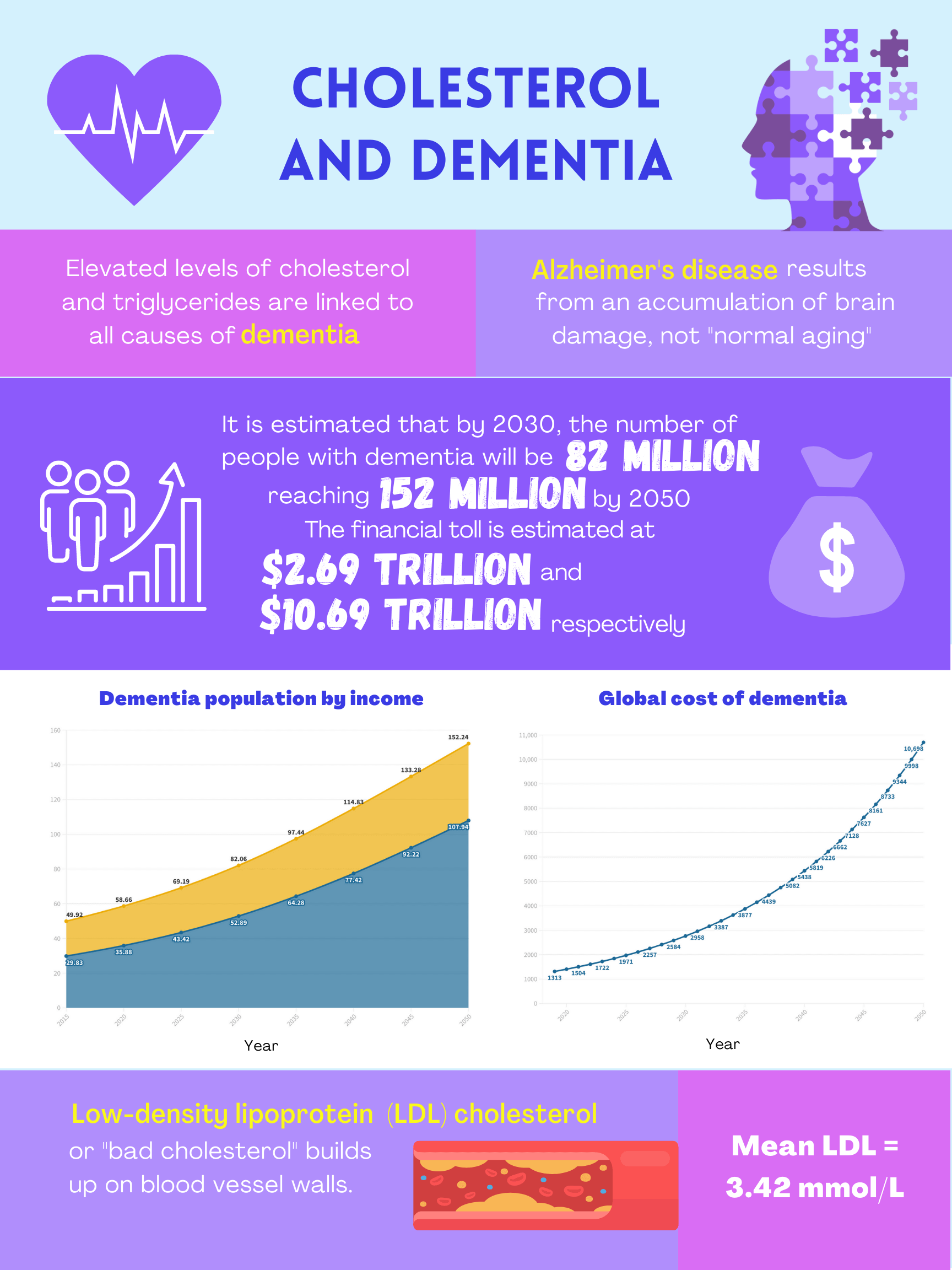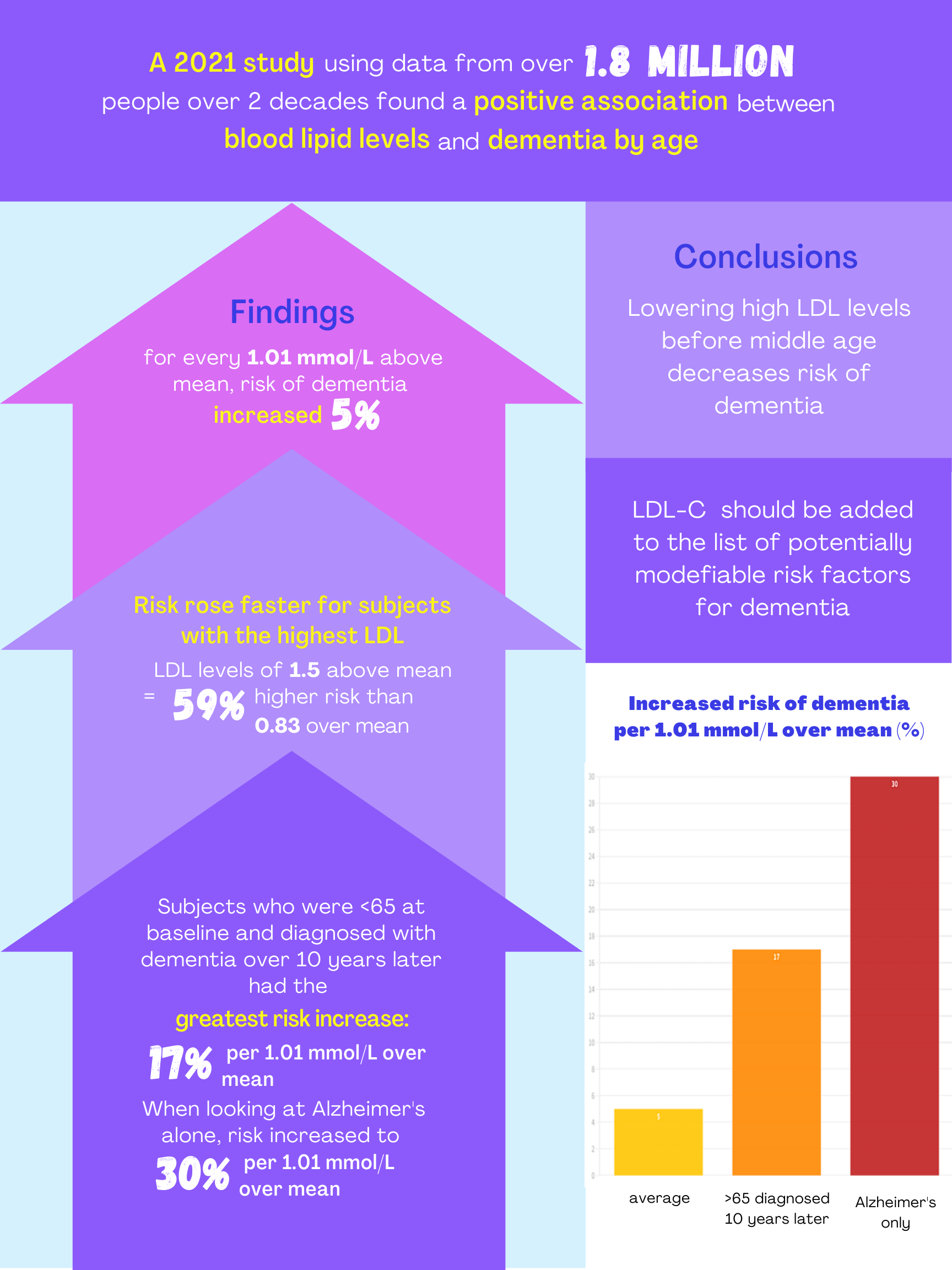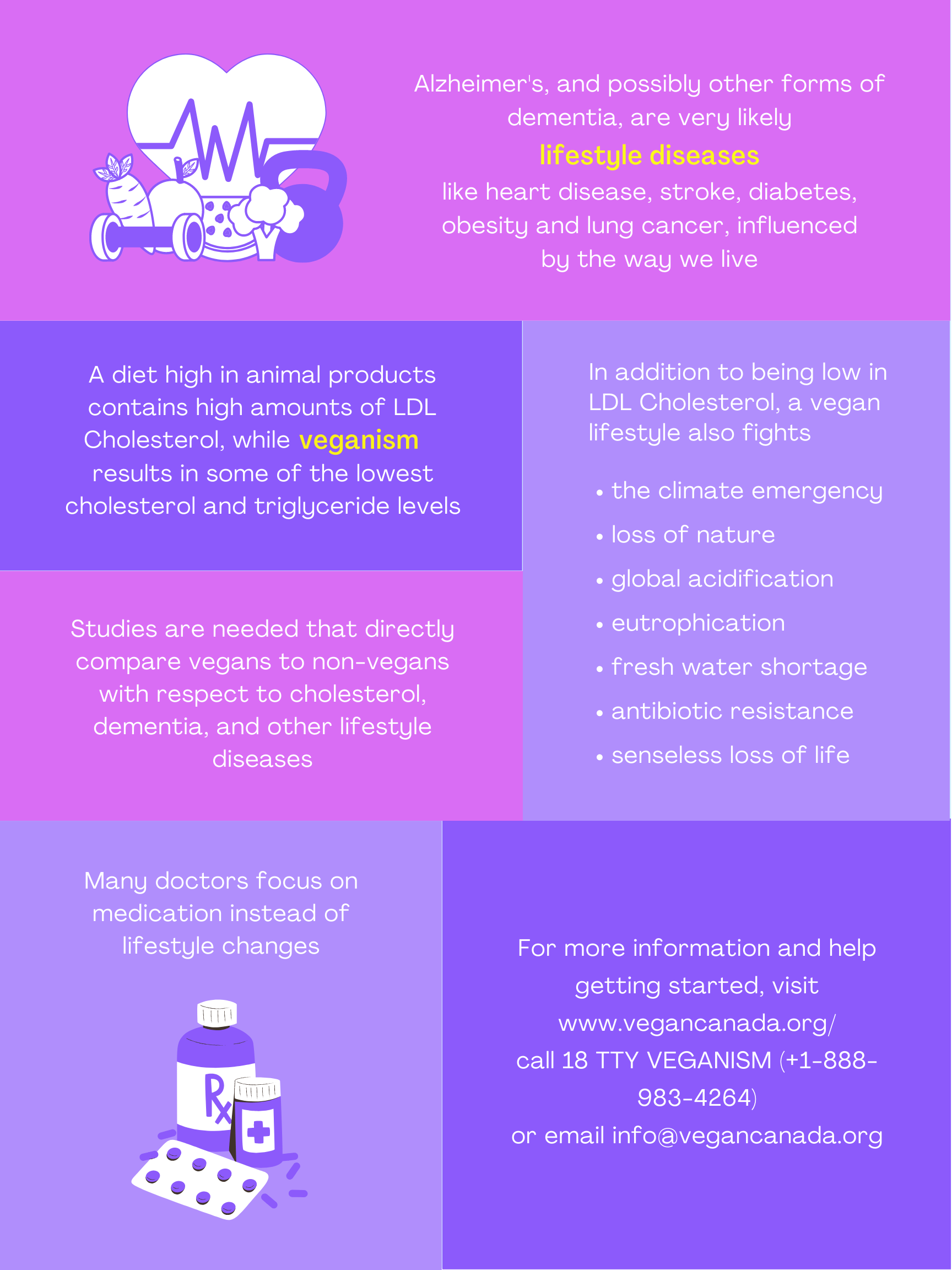Alzheimer's disease, dementia and the cholesterol link
Vegan Society of Canada News
Published November 18th 2022
Updated March 31st 2023
We have known the health risks of cholesterol for a while, even though the animal agriculture lobby has been trying its best to corrupt science in an effort to tell a different story.
However, something that is less well known is the link between a diet high in animal foods as shown by elevated levels of cholesterol and triglycerides, and all causes of dementia, including Alzheimer’s disease.
Evidence has been accumulating over the decades on the effects of cholesterol on all causes of dementia. One of the most extensive studies on the subject was published last year without much fanfare. The study looked at 1.8 million people over two decades and confirmed a link many other studies had seen. It concluded there is a 5 percent increased risk of dementia per each 1.01 mmol/L increase, or 39 mg/dL, over mean levels of LDL cholesterol. The risk is 17 percent higher for those in mid-life, as shown with people under 65 who were diagnosed more than 10 years later. More importantly, the increased risk from the lowest group (LDL < 2.59mmol/L or < 100 mg/dl) to the highest group (LDL > 4.92mmol/l or > 190 mg/dl) was a staggering 59 percent higher.
What is even more interesting is that the study went further and separated the most common form of dementia, which is Alzheimer's, from other forms. The type of disease Alzheimer’s is has been debated in science for some time. As human animals, we prefer if our illnesses are not our fault, for example, if it is due to some of our genes and not our own actions. With regards to Alzheimer's, scientists were debating whether it was another lifestyle disease. The data from this study should help put this to rest.
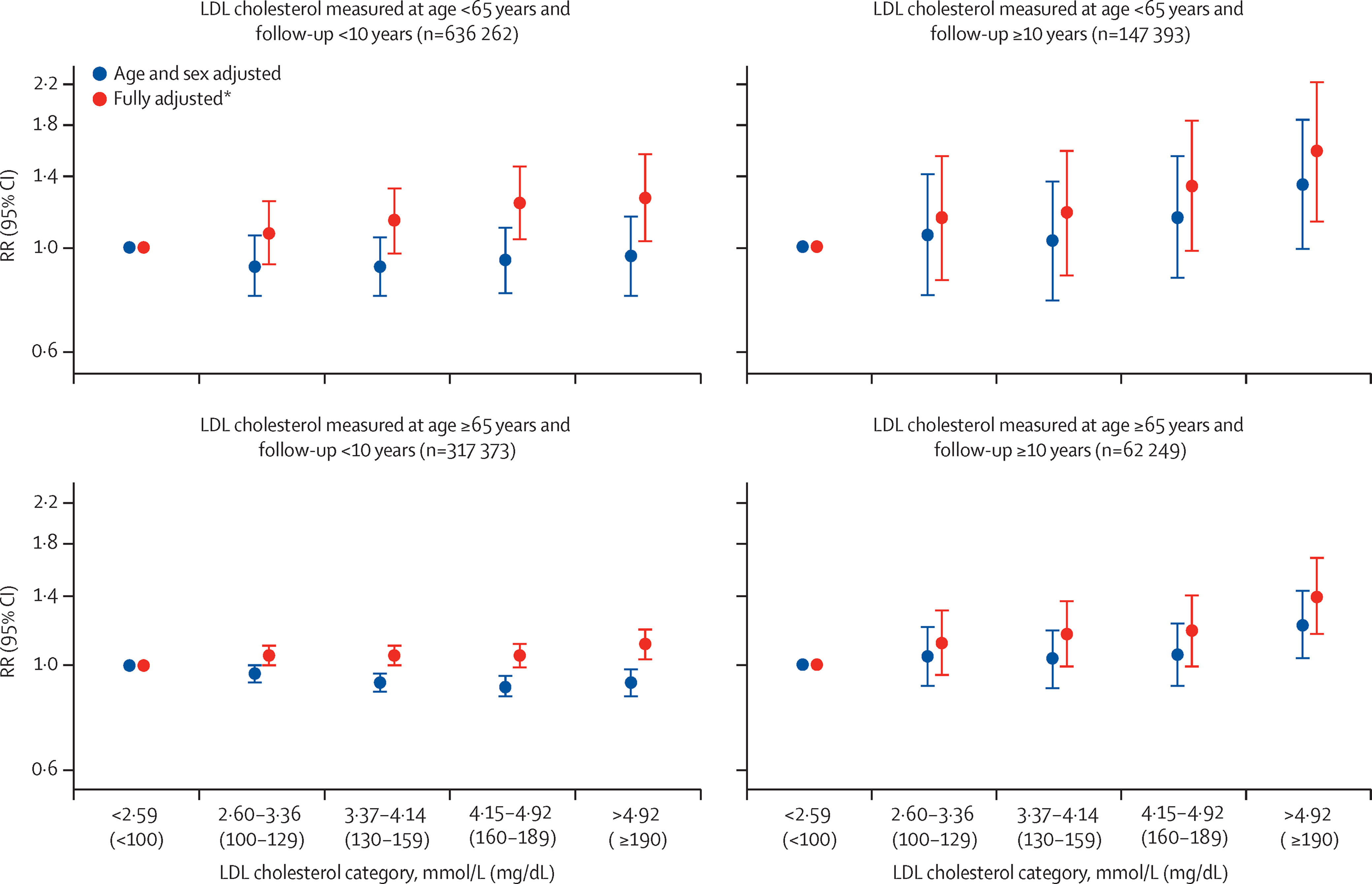
When only considering Alzheimer’s disease, the average risk from a diet rich in animal foods in mid-life (as shown by elevated LDL cholesterol levels of those under 65 and diagnosed more than 10 years later with Alzheimer’s disease) was 30 percent higher versus 17 percent for all causes of dementia. This was on average; we can expect a much higher risk between the lowest and highest group, i.e. the risk between the lowest levels of LDL cholesterol and the highest for Alzheimer's alone.
Even Alzheimer's organizations are starting to acknowledge this risk. It is only logical that when trying to prevent a lifestyle disease that one would advocate for a change in lifestyle. Veganism naturally results in some of the lowest cholesterol and triglyceride levels. Unfortunately, many organizations focus on cholesterol-lowering drugs instead of lifestyle changes.
We don’t want to oversimplify the picture; while lifestyle diseases are mainly linked to lifestyles, there are also other causes and dementia is not different. For example, there seems to be a genetic dimension in Alzheimer’s disease like the APOE gene, which has an important role in brain cholesterol transport. Nevertheless, its importance seems to be due to its role in cholesterol transport, but cholesterol remains the underlying problem.
Various organizations regrettably claim that aging is the biggest risk factor for Alzheimer’s. It would be like saying that aging is the biggest risk factor for lung cancer. It simply hides the fact that the increased risk is the number of cigarettes smoked, which of course accumulate over the years, and it’s not age per se. Lung cancer is not a normal part of aging. Similarly, the increased risk for Alzheimer’s comes from the damage to the brain, over time, via cholesterol, cardiovascular disease, arteriosclerosis and high blood pressure due to lifestyles that include smoking, alcohol consumption and unhealthy diets consisting mainly of animal products.
Believing that Alzheimer’s and other forms of dementia are normal parts of aging shifts the focus away from the underlying risk factors. It’s rare for many common diseases to occur at 16, but that does not make them a normal part of aging. In lung cancer, the conversation shifted to packs per year partly to make it clear the relationship between time and smoking. Perhaps we need something similar for dementia to strengthen its correlation with time, age and unhealthy lifestyles.
Once again, it would be advantageous to include people who self-identify as vegans in these studies. Vegans tend to have average levels of cholesterol and triglycerides, typically lower than the lowest groups in the general public. Since studies have shown that there are benefits to reducing LDL below 2.59mmol/L or 100 mg/dl, it seems likely that a healthy lifestyle in mid-life would be reflected in the numbers. It may give us new insights into this terrible disease that other control groups could not.
It seems that at least Alzheimer’s, if not dementia in general, has now joined other lifestyle diseases such as heart disease, stroke, diabetes, obesity, and lung cancer as diseases mainly associated with the way we live. At this time, the social costs of these diseases are only partly mitigated by taxes on tobacco, alcohol and, more recently in some countries, sugar.
The social cost and the cost of lives to all animals of these diseases globally are staggering. In 2011, it was estimated that this cost could reach USD 47 trillion by 2030. In the US alone in 2020, it was estimated that the cost of Alzheimer's was USD 305 billion and projected to surpass USD 1.1 trillion by 2050. Globally, the number of people with dementia is estimated to be 82 million in 2030 and reach 152 million in 2050 with associated costs of USD 2.76 trillion and USD 10.69 trillion respectively.
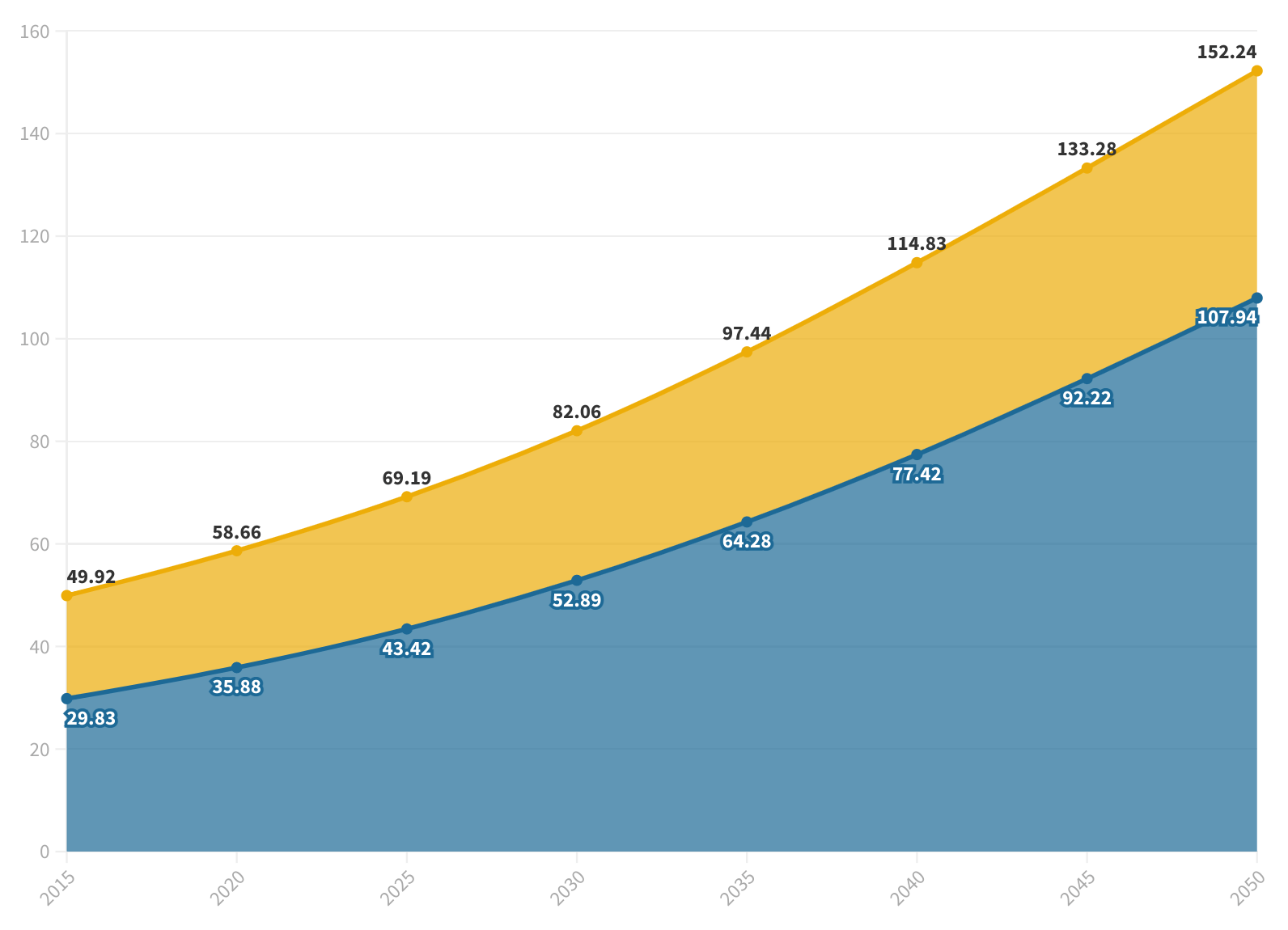
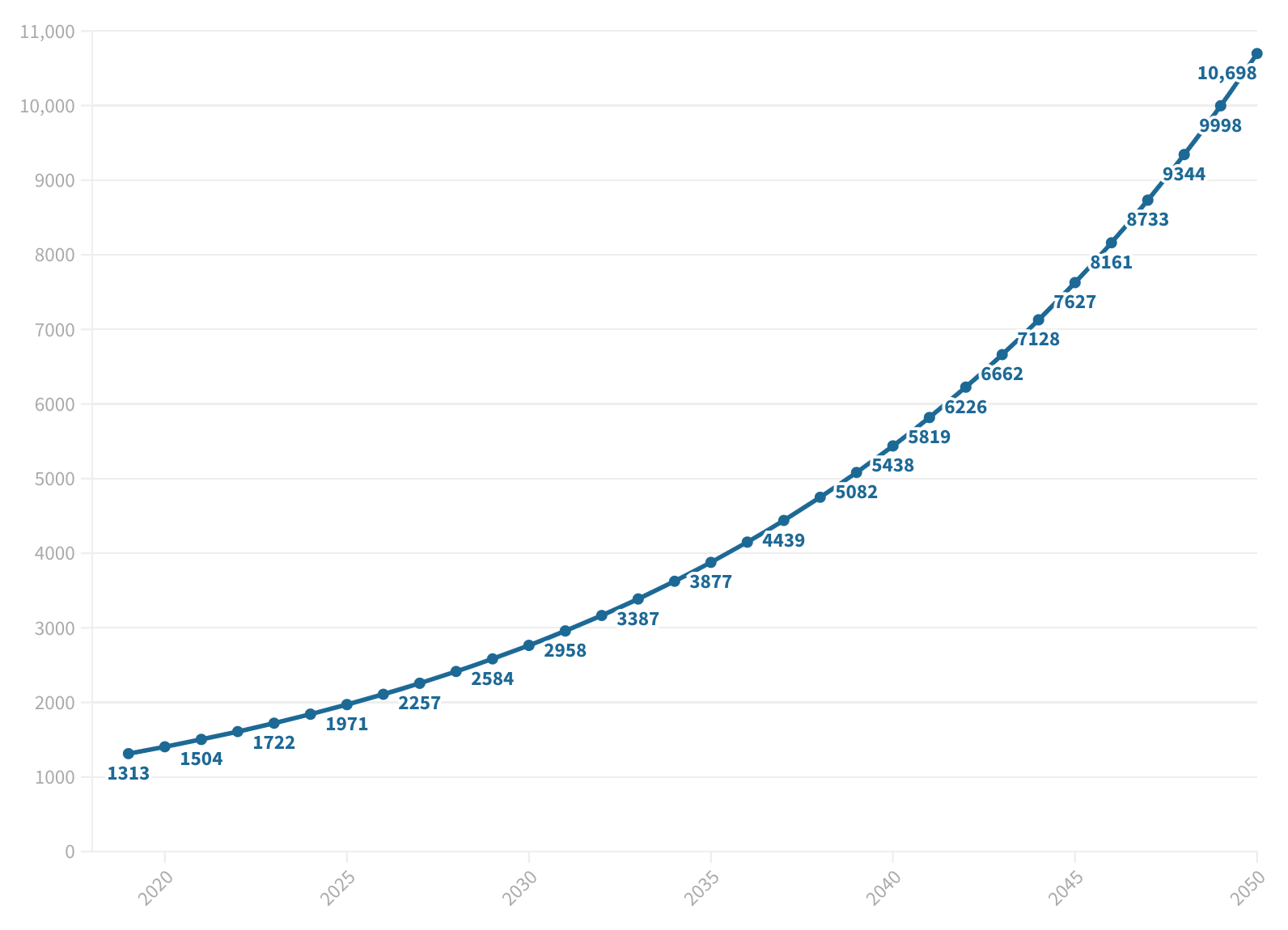
Infographics
The solution is simple: Changing our lifestyle. We suggest considering veganism.
A change of lifestyle offers individuals a powerful means to combat a range of issues, including personal health problems, climate change, loss of biodiversity, global acidification, eutrophication, freshwater shortages, pandemic prevention, antibiotic resistance, save countless lives and much more. We know of no other efficient way for individuals to address these critical challenges simultaneously without waiting for government, corporate, or technological interventions. By changing lifestyle, people can take immediate and impactful action. We encourage you to embrace this lifestyle change today. Contact us for support and to connect with local communities in your area.
